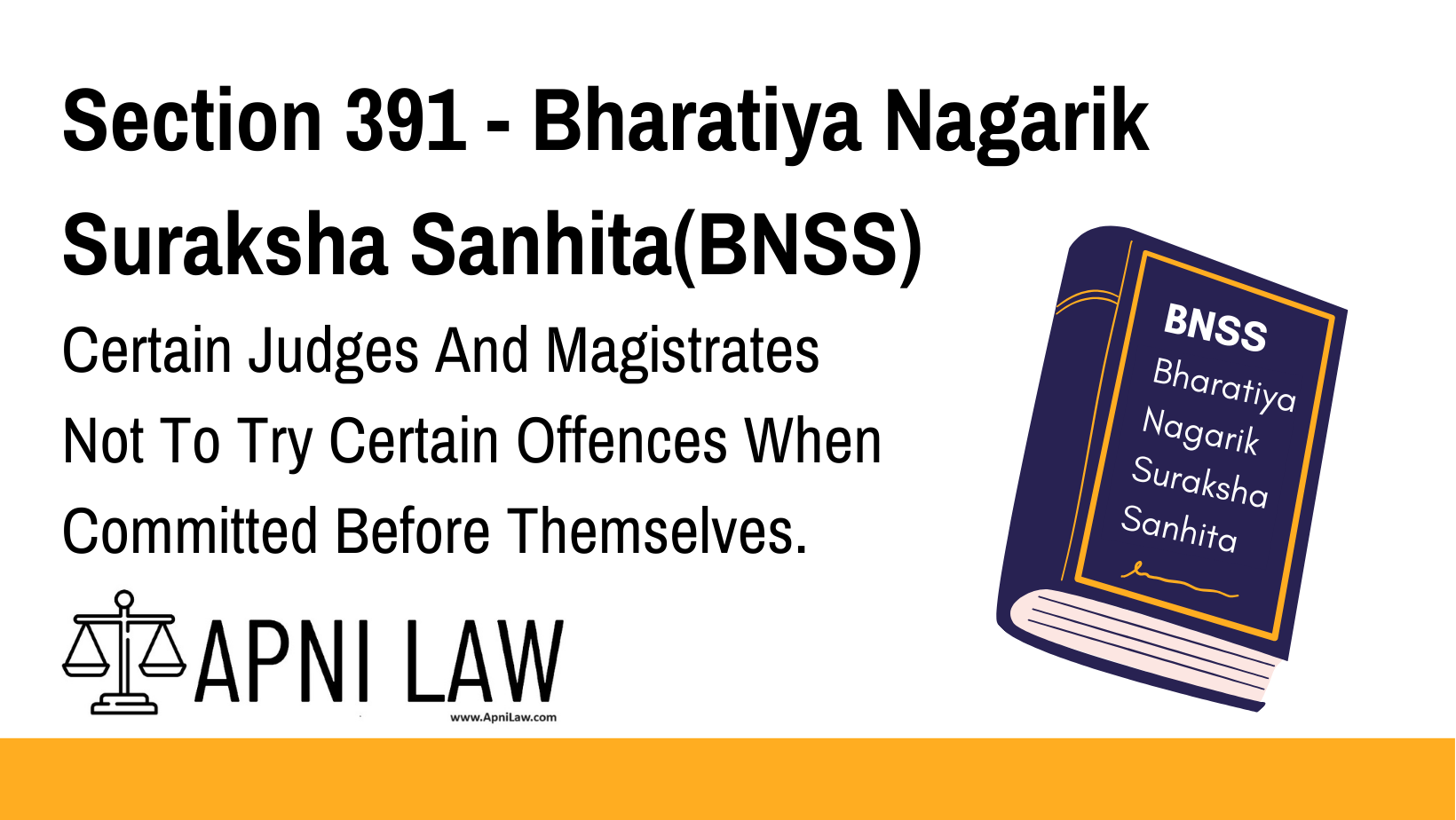Code: Section 391 BNSS
Offences Committed in the Presence or Contempt of the Judge/Magistrate
Except as provided in sections 383, 384, 388 and 389, no Judge of a Criminal Court
(other than a Judge of a High Court) or Magistrate shall try any person for any offence
referred to in section 215, when such offence is committed before himself or in contempt of
his authority, or is brought under his notice as such Judge or Magistrate in the course of a
judicial proceeding.
Explanation of Section 391 BNSS
Section 391 BNSS establishes specific restrictions on a Judge or Magistrate when it comes to trying an offence that has occurred in their presence or involves contempt of their authority.
Key Provisions:
- Jurisdictional Restriction
A Judge or Magistrate (other than those from a High Court) cannot try a person for any offence described in section 215, if the offence was committed before him or her, or if the offence involves contempt of their authority. - Contempt or Judicial Interference
This applies when an offence is brought to their attention during a judicial proceeding. Essentially, a Judge or Magistrate cannot adjudicate certain matters in which they are personally involved or where their authority may be directly challenged. - Exceptions to the Rule
The restrictions set out in this section do not apply if the offence falls under sections 383, 384, 388, or 389 of the Bharatiya Nyaya Sanhita (BNSS).
Illustration
Example 1: Offence in Presence of a Magistrate
Suppose a person commits an offence in the presence of a Magistrate during the course of a judicial proceeding. In such a case, the Magistrate cannot try the person for that offence, as it is deemed inappropriate for the same Magistrate to handle such a matter.
Example 2: Contempt of Authority
If a person commits an act of contempt against the Judge during the proceedings in their court, that Judge cannot try the person for the contemptuous act. This ensures judicial impartiality and prevents any conflicts of interest.
Common Questions and Answers on Section 391 BNSS
1. Can a Judge try a person who has committed an offence in their presence?
No, a Judge (other than one from the High Court) or a Magistrate cannot try a person who has committed an offence in their presence or in contempt of their authority.
2. What if an offence is related to judicial proceedings?
If an offence is brought to the Judge or Magistrate’s attention during a judicial proceeding, they are restricted from trying that case themselves to avoid conflicts of interest.
3. Are there any exceptions to this rule?
Yes, the restrictions do not apply to offences covered under sections 383, 384, 388, or 389. These exceptions provide some flexibility in certain cases.
Conclusion
Section 391 BNSS ensures the impartiality of the judicial process by restricting a Judge or Magistrate from trying cases in which they have a direct interest or involvement. It seeks to maintain the integrity of the judiciary by preventing any potential bias in legal proceedings.
This structure helps break down the key provisions and ensures the concepts are clear and accessible to those seeking to understand Section 391 BNSS and its implications.










